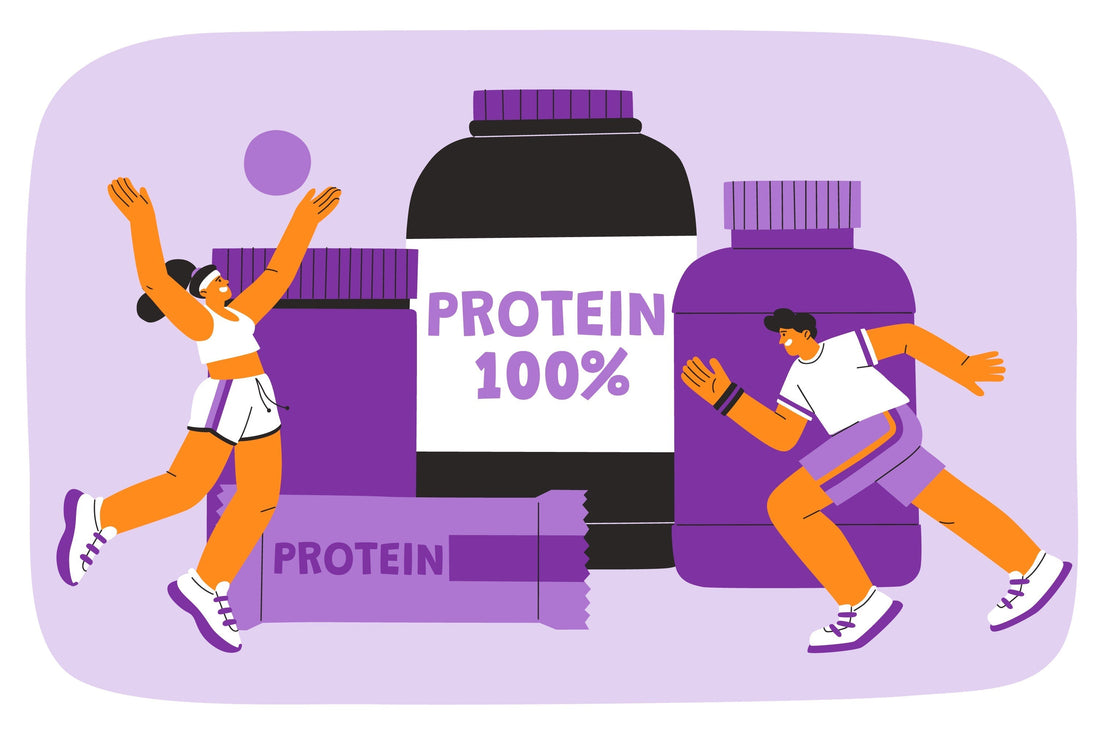
Whey Protein: The Ultimate Muscle-Building Supplement?
Share
Hey there, fitness enthusiasts! We all know the post-workout struggle: finding the fuel to rebuild and recover. That's where whey protein comes in, a widely used supplement touted for its muscle-building prowess. But is it all hype, or is there real science behind it? Let's delve into the world of whey protein, exploring its benefits, potential downsides, and quality concerns.
What is Whey Protein?
Imagine a glass of milk sitting undisturbed. Over time, a watery liquid separates from the curds – that's whey! During cheese production, this whey liquid undergoes processing to create whey protein powder, a concentrated source of protein.
Making the Most of Milk's Muscle-Building Potential: There are three main types of whey protein:-
- Whey Concentrate: Contains about 70-80% protein, with some lactose (milk sugar) and fat.
- Whey Isolate: A more refined form with 90% or more protein, less lactose, and minimal fat.
- Whey Hydrolysate: The most rapidly absorbed type, often used by athletes seeking a quick protein boost after exercise.

Benefits of Whey Protein:Science backs up some of whey protein's popularity:
- Muscle Growth and Repair: Studies published in the National Institutes of Health show whey protein can help with muscle protein synthesis, potentially aiding muscle growth and repair after exercise.
- Improved Athletic Performance: Some research suggests whey protein may enhance athletic performance by improving recovery and reducing muscle soreness.
- Weight Management: Whey protein's high satiety (feeling full) properties may help with weight management by reducing calorie intake throughout the day.
Potential Downsides of Whey Protein: While generally safe, whey protein might not be perfect for everyone:
- Lactose Intolerance: Whey concentrate can trigger digestive issues in those with lactose intolerance. Opt for whey isolate or lactose-free varieties in such cases.
- Kidney Concerns: People with pre-existing kidney problems should consult a doctor before taking whey protein, as high protein intake can put additional strain on the kidneys.
- Quality Concerns: Unfortunately, some protein powders may contain hidden ingredients or fillers. Always choose reputable brands and check the label carefully.
The Harvard Perspective:
A 2018 Harvard Health article cautions about the potential downsides of protein powders. The article cites a study by CLEAN LABEL PROJECT that found heavy metals, pesticides, and even BPA ( bisphenol-A, a chemical linked to health issues) in some protein powders. This suggests that some protein powders may not be as pure as advertised and could pose health risks.
So, Should You Supplement with Whey Protein?
If you're a healthy individual struggling to meet your protein needs through diet alone, whey protein can be a convenient and effective way to boost your intake. However, it's not a magic bullet for muscle building. A healthy diet, regular exercise, and adequate sleep remain crucial.
Remember:
- Consult a doctor before starting any new supplement, especially if you have pre-existing health conditions.
- Choose high-quality whey protein from reputable brands.
- Don't rely solely on whey protein for your protein needs – prioritise a balanced diet.
Let's keep the conversation going! Share your experiences with whey protein in the comments below. Have you found it beneficial?
P.S. This blog is for informational purposes only. Always consult with a healthcare professional for personalised advice on protein supplements.
